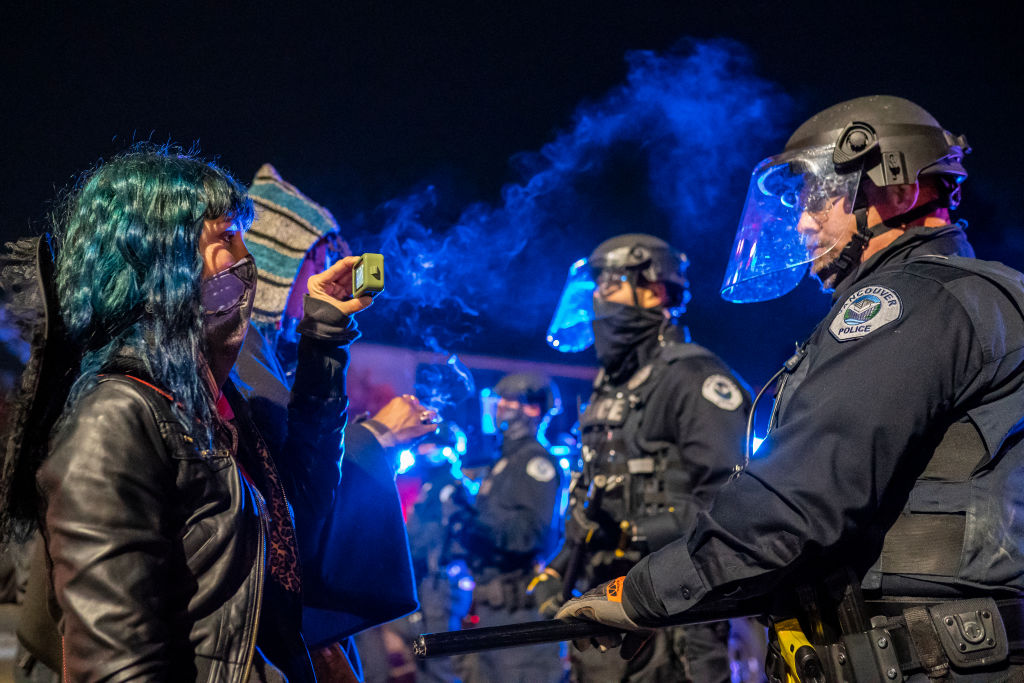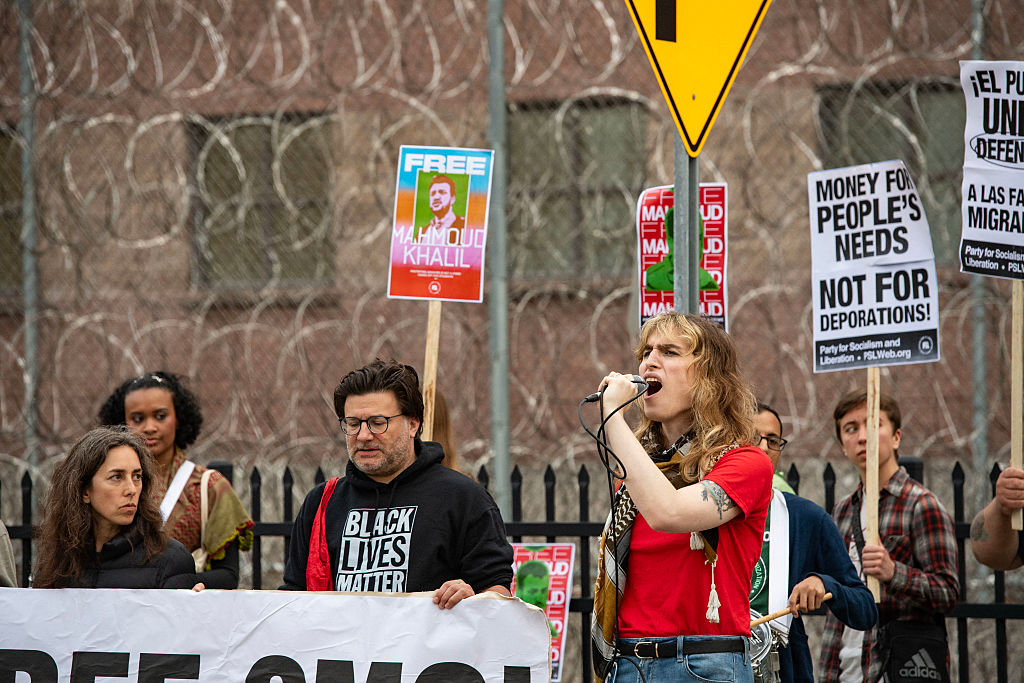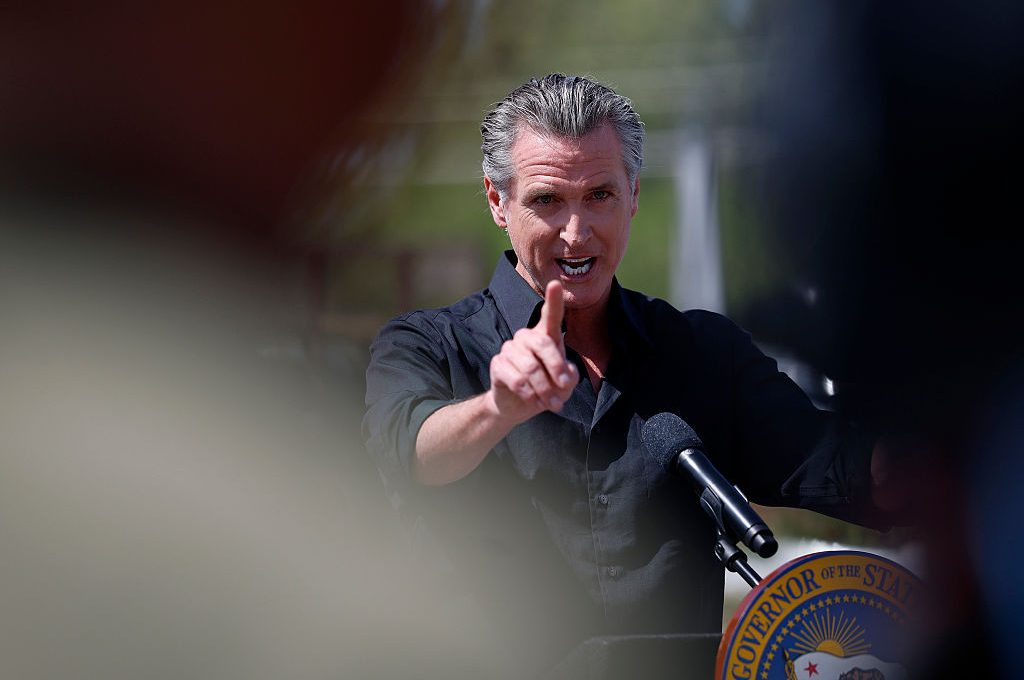Laramie, Wyoming
The refuge of a scoundrel is always the profession — in spades — of whatever a particular society prizes above everything else. In the United States from 1776 until the 1960s, that was patriotism. Since then it has been racial equality, succeeded in recent decades by crude and unapologetic racism of the anti-white variety whose virulence appears to contradict Newton’s Third Law, which states that for every action there is an equal and opposite reaction. This is why the death of George Floyd in the custody of the Minneapolis Police Department last May was accepted by the left as proof that race relations in America have worsened in recent years to attain critical mass.
Of course, there was — there is — absolutely no sound basis for this conclusion, though plenty exists to support the opposite claim. The condition of black people in America today is far better than it has been at any point in the history of the country when considered in terms of employment, income, material comfort, social acceptance, visibility in sports and in the arts, and political representation and participation. L’affaire Floyd, as distinguished from the actual death under duress of the gentleman himself, exploded under the pressures of a national society suffering from the tension, anxiety and anger produced by a pandemic, enforced isolation, economic devastation and the most volatile and partisan election year since 1860. It was not preceded by a season of prolonged racial or interracial violence (the homicidal mayhem in Chicago is strictly localized and perennial, and thus as expectable as the wind); it did not represent the culmination of anything; it was not the proverbial final straw.
The left invokes a long-delayed rebellion against ‘systemic racism’ to explain and excuse the cataclysms of the summer. The fact of the matter is that the history of the United States has been no more racist, unequal and oppressive than most racially pluralist countries. Nor, contrary to the grounding thesis of the historically ignorant and dishonest 1619 Project, was the United States ‘born in racism’. Slavery was introduced into North America centuries by western Europeans before any such thing as an ‘American’ existed (except for the indigenous natives). The vast majority of descendants of immigrants from western Europe did not live in America in the decades and centuries during which slave labor was imported to the South and North American continents. Moreover, most of this human labor was originally enslaved not by white men but by the warring tribes of black Africa who sold their captives to Arab traders, who in turn sold them to European purchasers for trans-shipment to the New World.
Further, the American Fathers who founded the United States between 1787 and 1789 were no guiltier of advancing the Peculiar Institution than they were of inventing it. Quite simply, they took what social, political and economic institutions and conditions were at hand to create the new nation and made the best they could of them. While they were about the business, their cousins in Great Britain were largely agreed in their determined efforts first to end the slave trade and, following that, slavery itself. The inhabitants of the Northern states were almost to a man (save for the New England traders out of Boston) anti-slavery in sentiment; while Southerners could not, supposing they had wanted to (and some of them, including slaveholders themselves, did want to), conceive of a practical program for transforming the society based on plantation agriculture and slave labor they had inherited into something else.
Had Northern representatives at the Constitutional Convention refused to compromise with their Southern counterparts on the slavery issue (including the three- fifths rule of popular representation), the United States could never have been created; and while some American radicals today argue that that would have been an excellent thing, their argument is plainly ahistorical. Slavery is an ages-old institution, mentioned often in the Bible, and with a global history traceable to the deepest depths of prehistory. It did not begin to be widely perceived as scandalous by moralists, theorists of natural rights and the Catholic Church until shortly after Europeans discovered and began to colonize the New World. Before then there was nothing peculiar, in short, about the Peculiar Institution that had hitherto been of universal extent, as indeed it remains today, though largely invisible.
In relative terms, agitprop is of as ancient origin on the left as the stone hammer is in the history of homo sapiens, and it is a tool that never rusts. American agit-propagandists seized on slavery and racism a century ago as an indispensable pretext to subvert the United States, mainly because there have been so few other plausible social evils in American society to condemn it for, and thus upon which to found a revolutionary movement. Since 1789 — since, in fact, the 13 colonies were established in the 17th century — making a living in America has been as easy for a free and enterprising people as rolling off a log. By comparison with other nations, the United States has never known anything that could fairly be described as radical poverty, save in a few periods and in certain geographical pockets of the country. In no other modern western nations with ethnic and racial minorities have black people done better, economically and socially, than they have done here. In Great Britain and France, for example, racial and racial- religious strife has increased considerably since decolonization, though it is agitated less, for obvious historical reasons.
Naturally, the New Abolitionists — America’s latest self-proclaimed clerisy, its moral avatars — ignore all of this; indeed, they consider any reminder of the historical facts racist in itself. They have created the concept of systemic racism by inventing a metaphor for the old slave-holding system in order to justify their conscious, determined and ruthless program for destroying the United States, a project they adopted at least 100 years ago. The Marxists, neo-fascists and anarchists — including their black comrades-in-arms — care little or nothing for black people themselves, whose lives they regard quite simply as being among their chosen instruments of destruction. They don’t love blacks; they do hate Americans.
This article was originally published in The Spectator’s November 2020 US edition.

























